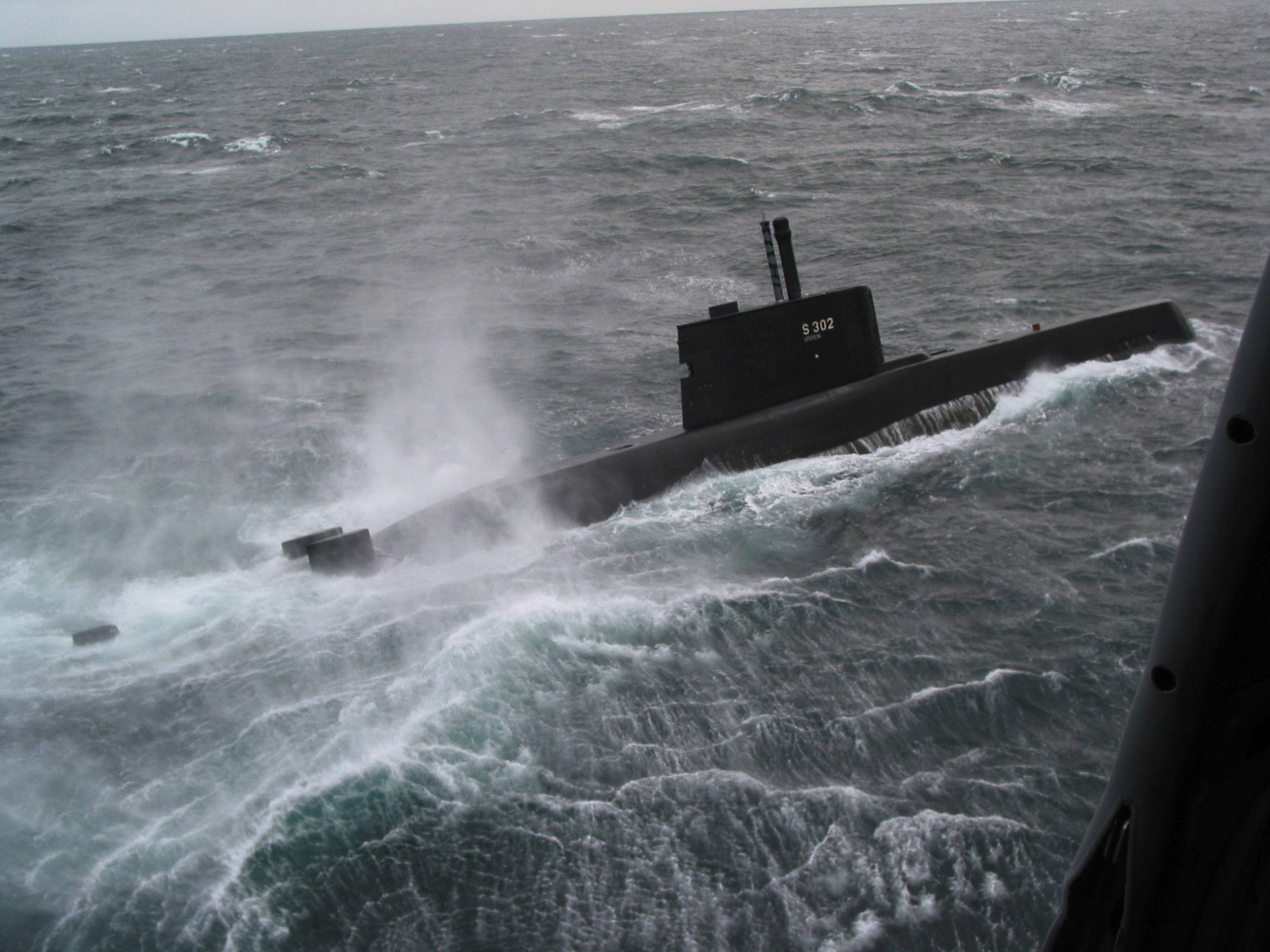Submarine
Gentlemen and Gentlewomen of the Vox Chaotica Council! I'm not gonna lie, this is going to be my most awkward post to date. You see, I never, never, talk about anything emotionally negative with even my closest friends—the why on that in a bit. I usually don't even talk to my family about it.
So we'll just dive in, full steam ahead! For you hardcore folks who like method acting, put on Hospice by The Antlers. If my spirit animal was an album (which it probably is, let's be honest), then this would be my spirit album. Besides, it's the sort of mood I think you need for this.
And now for a small disclaimer: There is the possibility that some of my readers may feel something close to repulsion because my problems are the stereotypical male, 20-something, white privilege problems everyone loves to marginalise (and on the whole, rightly so) because we have such an atrocious gap between the white, male, 20-something hetero kid, and everyone else in terms of rights. But I am white, straight, male, 24, and part of a middle-class family. [Editor's note: what I'm trying to say is that I am not here to offend you. I just think that maybe I'll be able to say something even just one other person can empathise with, and maybe it will help them.]
I affectionately refer to myself as a functional melancholic—someone who is chronically unhappy but has found a way to submerge the sorrow deep enough to not show because there is so much pressure to just be happy. If you're not on board yet, I'm taking us down the track of the metaphor I chose for this post. Lemme give you another hint:
 Submarines are a perfect fit—though the credit for that has to go to the movie Submarine (or rather the book by Joe Dunthorne). I feel like I'm some tiny vessel slowly drifting through the pitch-black currents on the ocean floor—quiet, alone (perhaps by choice), under immense pressure that threatens to crush me into oblivion... and lonely. Perhaps it's the loneliness that really gets me down.
Submarines are a perfect fit—though the credit for that has to go to the movie Submarine (or rather the book by Joe Dunthorne). I feel like I'm some tiny vessel slowly drifting through the pitch-black currents on the ocean floor—quiet, alone (perhaps by choice), under immense pressure that threatens to crush me into oblivion... and lonely. Perhaps it's the loneliness that really gets me down.
Being alone is something that comes with being a good listener. In this insanely loud world, people who can actually hear what they are listening to are somewhat rare. Talkers, though, are not. Most people are good at talking—maybe they just have a mind for communicating, maybe they are uncomfortable (or afraid) of silence, and they are prized in our society because communication is so important. And the problem I frequently run into is that talkers do not make for good listeners.
In keeping with our nautical theme, it's like sonar. There's passive sonar, which is used to detect sounds from other vessels (listeners), and active sonar, which is the pinging thing so prevalent in submarine movies (talkers). Using us as sounding boards, our speech-centric friends give off waves of speech. We're there as sort of a navigation system for the soul—they bounce their ideas, hopes, and fears off us and because we don't judge or try and talk over them, they can stay a safe course. Surely, a good listener can give advice, but that's not what our friends need us for.
This is not necessarily bad, but it's frustrating becoming the listener in a circle of friends—you get called upon to listen, but it only rarely (if ever) crosses their minds to ask if they can listen to you. I simply listen as ships pass me by.
My friends often don't listen for me because I don't know how to ask them or how to offer information. I was terminally shy when I was younger, and always found it more interesting to listen to the adults than play with the kids my age—there was too much noise and confusion there. So I never really figured out how to have a strong speaking voice (funnily enough I can't scream or yell either)—all my confidence was in listening, and that eventually grew into writing because I could think about and plan what I would say on paper, instead of having to make it up as I went along when actually conversing with someone else (not to mention the embarrassment and discomfort of falling short in conversation).
Also, my friends have a tendency to leave. I think it's just the natural progression, and a constant reminder that transience pervades life. Let it not be said that I am angry or feel betrayed by their leaving—every person has their own life, and I have come to accept that most of my friendships are fleeting. And how can I begrudge their leaving when I plan to do the same by moving to England?
And none of this really makes me sad. It makes me feel a bit alone, and that adds to the chill of sorrow deep in the dark places, but I'm just not a naturally happy person. I cannot help focussing on my mistakes, wondering if the path I chose to travel was the right one, and pining for my lost loves. It's sappy, dumb, and super cliché, but there it is.
In this time, sadness is a mistake—or rather, something that needs to be rectified. Make people happy for their work, their country, their lives! If you don't, they won't work as well, they won't be living to the fullest! And for most of the people I know, that means using their innate active sonar—talk to your friends and cheer them up! But I don't want to be talked to, most of the time I just need someone to listen. I just need someone comfortable with sitting in the silence and cold and dark with me. Someone who won't pressure me into being happy, and will occasionally just say everything's going to be alright.
But this is a small, insignificant problem when my friends are fighting to enjoy what I deem basic human rights. The ignorant among us are still bigoted against the non-white, non-Christian, non-hetero, and non-male. Otherwise, we wouldn't have the glass ceiling, the marriage debate, religious conflicts, or blatant racism still impacting us every day. So who I am to burden my friends with my problems? How can I possibly justify needing someone to listen to my sadness when there is such injustice for my friends?
That pressure to be happy (and all the conversation trying to get you there) doesn't go away, and because everyone else has their own problems, I learned to put on a brave face. At first it was only a temporary thing—something to get me through the outside world. As the saying goes, "You wear a mask for so long, you forget who you were beneath it." [Editor's note: that's an Alan Moore quote from V for Vendetta.]
So when I am alone, I sink down where it is cold and dark—where the pressure inside overcomes the pressure from outside. I pour myself into music because it allows me to equalise how I feel, even if the words aren't quite right. It won't judge me, and it will let me sit in the cold and dark.
[youtube https://www.youtube.com/watch?v=lAwYodrBr2Q&w=640&h=360]

